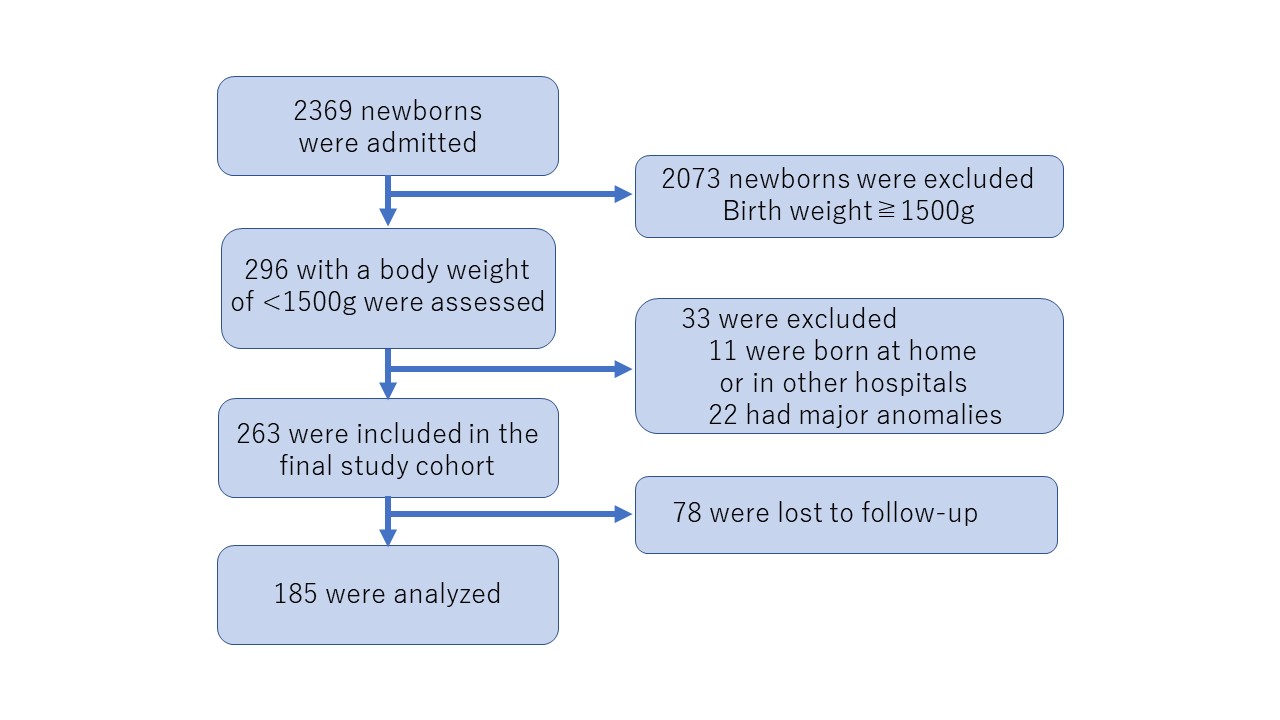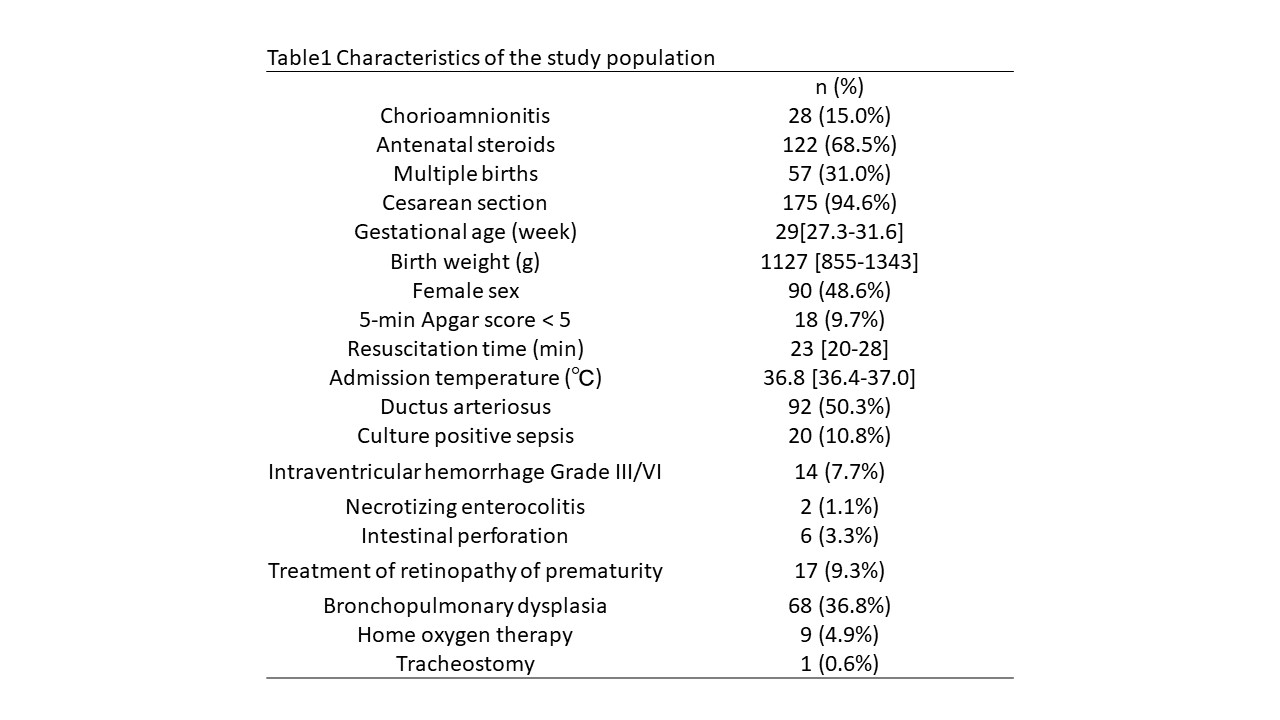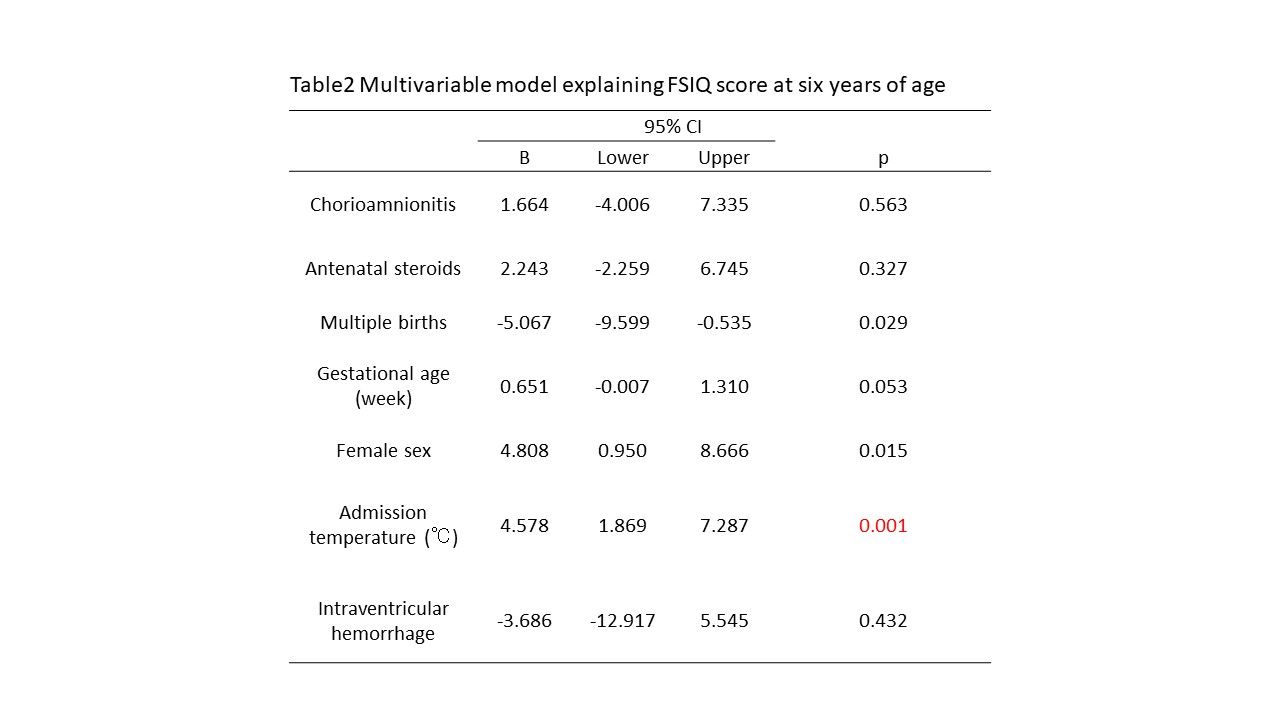Neonatology
Session: Neonatal Follow-up 2
500 - Admission temperatures in very low birth weight infants and their neurodevelopmental outcomes at six years old
Saturday, May 4, 2024
3:30 PM - 6:00 PM ET
Poster Number: 500
Publication Number: 500.1444
Publication Number: 500.1444

Hirono Tahara, MD (she/her/hers)
Doctor
Japanese Red Cross Aichi Medical Center Nagoya Daini Hospital
Nagoya, Aichi, Japan
Presenting Author(s)
Background: Low admission body temperature is associated with short-term adverse outcomes and higher mortality in very low birth weight infants (VLBWIs). In order to clarify the relationship between admission body temperature and long-term outcomes, we further demonstrated that lower admission temperatures were associated with the incidence of death or moderate to severe developmental impairments at three years of age (Kato et al. 2019 PAS). However, considering the inconsistency regarding the relationship between clinical variables during neonatal period and long-term outcomes, extended follow-up of these infants is essential.
Objective: To examine the association between admission body temperature and WISC-IV full scale intelligence quotient (FSIQ) at six years of age in VLBWIs.
Design/Methods: We retrospectively reviewed the medical records of VLBWIs admitted to the NICU of Japanese Red Cross Aichi Medical Center Nagoya Daini Hospital, from April 2010 to March 2017. Infants with congenital malformations or chromosomal aberrations were excluded. Rectal temperature was recorded immediately after admission. Developmental assessment was performed using the WISC-IV at six years of age, and a multiple linear regression analysis was performed to investigate the dependence of FSIQ on their admission body temperature.
Results: 296 VLBWIs in the final study cohort, developmental assessment was completed in 185 newborns (gestational age at birth: 29 weeks [27.3-31.6], birth weight: 1127 g [855-1343], median [interquartile range], Figure 1, Table 1). The median admission body temperature was 36.8 °C, with 27.0 % having an admission body temperature below 36.5 °C. After adjustment for background variables (chorioamnionitis, antenatal steroids, multiple births, gestational age, sex, intraventricular hemorrhage), low admission body temperature was significantly associated with low WISC-IV FSIQ (B=4.578, 95% confidence interval [1.869-7.287], p=0.001, Table 2).
Conclusion(s): We have demonstrated for the first time that admission body temperature is persistently associated with developmental outcomes at 6 years of age. This result emphasizes the importance of temperature management in premature infants immediately after birth. A Large-scale prospective observational study is needed to clarify whether maintaining body temperature at admission improve long-term outcomes of VLBWIs.



